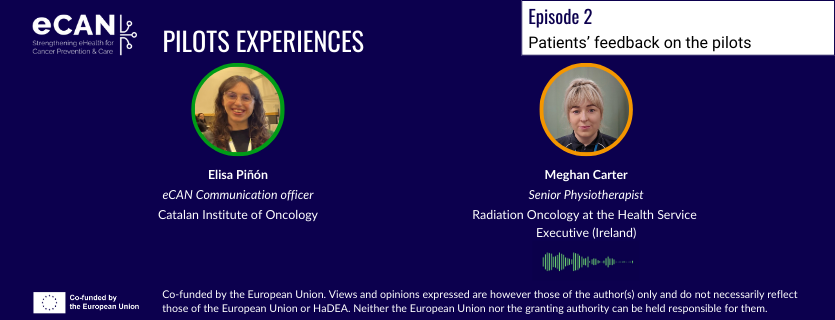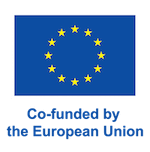Constantina Palala, psychologist: “The feedback was positive, and some sessions were actually very good through the online platform”
eCAN Bites is a podcast that gathers interviews with some of the healthcare professionals that have participated in the eCAN pilots. In four episodes we will try to dive into their experiences. How was to be involved in this study as a healthcare professional? What’s the patients’ feedback? How could this project change the current healthcare ecosystem in Europe?
In this second episode, we’ve interviewed one of the primary investigators of this research, one physiotherapist that worked with breast and head and neck cancer patients, and two clinical psychologists that offered online therapy to cancer patients. We want to share the patients’ experiences through their voices and these four professionals have helped us to build a clearer picture on what patients needed and expected. We invite you to press play and listen to their experiences, you might be surprised by the importance of the very small details when doing a transnational study like this one.
PODCAST TRANSCRIPTION:
Elisa Piñón (00:06)
Hello and welcome to eCAN Bites. My name is Elisa Piñón and I’m a communications officer for the eCAN Joint Action and your host for today’s episode. For this second episode, we are going to explore some of the feedback that patients have given to the healthcare professionals who followed and monitored them during the eCAN pilots. For this purpose, I have with me today Meghan Carter, from Ireland; Orsolya Hovart, from Hungary; Sandra Birbilaitė, from Lithuania and Constantina Palala, from Cyprus. Thank you for being here today.
Let’s start with you, Meghan. Could you tell us a bit about yourself and your role in this project?
Meghan Carter (00:51)
Sure. So my name is Meghan Carter. I’m a senior physiotherapist in radiation oncology, and I’m based in a hospital in Galway in the West Coast of Ireland.
Elisa Piñón (01:03)
So, within this project you were in charge of working with breast and head and neck cancer patients, right? I guess they all have different points of view, but is there a common experience that you could share with us today?
Meghan Carter (01:15)
They were very relieved that they were getting some sort of follow up and that somebody was keeping an eye on them because. Obviously they have their medical follow-ups and they’re, you know, due for scans or some of them were due to start radiotherapy or you know different things that were going to be potentially in a few weeks or months, so it was good for them to have a clinician check in every week just to monitor, see if they’re OK. They could ask us questions that weren’t always related to physiotherapy, but just in general, medical questions that we might be able to guide them to the right person, so feedback was that it was good to have somebody there to chat to and to obviously keep an eye on symptoms like lymphedema or if they have any other musculoskeletal problems and then the only kind of negative feedback really was patients that were just disappointed from being in the control group.
Elisa Piñón (02:11)
Yes, as a patient, it is hard not to have any expectations when you get involved in this type of study, I guess. But I hope they know how useful their role is as well. Thank you for your insights, Meghan.
Meghan Carter (02:23)
Thank you.
Elisa Piñón (02:24)
We go from Ireland to Hungary, we have the pleasure of talking today to Orsolya Hovart. You work at the National Institute of Oncology in Hungary and were primary investigator in the eCAN pilots. So we can say you were involved in the whole process, from patients’ enrolment until the end. Did you have the chance to get to know the patients’ experience? Would you say they were happy with this process?
Orsolya Hovart (02:49)
They were really happy to get into the intervention (group), because it was much more easier. We had patients from all over the country, so there are quite a lot of patients who have to travel a lot and to get to the Institute, and also we have some patients who have little children and parents who care about them. So it was really good for them that they got into the intervention (group). And for the psychology, they were really happy that they get psychological treatment for two months because psychologists have quite a lot of patients and usually they meet with them just five times, and not for two months long. Also they get more treatment, so they were also very happy.
Elisa Piñón (03:51)
Thank you Orsolya. Your insights offer us a glimpse of the effects patients perceived while participating in the intervention group. And now I would like to dive a bit into the feedback patients provided with regard to psychological support. For that Sandra Birbilaitė is also with us today. She is clinical psychologist and psychotherapist at the National Cancer Institute of Lithuania. So, in the first episode we had here Marija Turlinskiene, she is your colleague, and she gave us some food for thought in terms of the eCAN pilots. Now it is your turn, Sandra. Do you consider patients were satisfied with their participation? Should we improve something for the next time according to their feedback?
Sandra Birbilaitė (04:33)
Yes, patients like the idea of participating in this. But we already talked with Maria about app improvements. We talked yesterday, and it can be that patients in the app can receive not only questionnaires but maybe some self-help materials, about depression, about anxiety, medicine, something like this. And if it’s related to rehabilitation (…), maybe some exercises can be involved in the app, so they can really do what doctors…
Elisa Piñón (05:26)
Yes, this app enables them to do what’s recommended by the doctor at any time during the rehabilitation process, so it could change according to their needs, which is helpful for the patient. Thanks a lot, Sandra, for your insights. Lastly, we would like to talk to Constantina Palala today. She is psychologist at the Cyprus Association of Cancer Patients and Friends, and you have had several online sessions with patients. Did they express how they felt during this whole process?
Constantina Palala (05:54)
I think that the fact that their engagement was monitored by us, meaning the measurements from the watch and the questionnaires make them feel safer, like that someone is looking after them. The feedback was positive, and I can say that some of the sessions were actually very good through the online platform. I think they felt safer and some of them felt more comfortable expressing themselves even more.
Elisa Piñón (06:36)
Yes, some people are sometimes reluctant to adopt digital tools when it comes to therapy, but it works for others, and I’m happy to hear that your patients were able to express themselves freely. Thank you so much for your participation today. Thank you all. Listening to patients’ experiences through your voices has been so insightful and we have taken note of some of the pending tasks that we need to accomplish to satisfy patients because we know that they are always first. Have a good day and see you in our next episode on implementing eCAN experiences in daily life scenarios. See you soon.
![]() Co-funded by the European Union. Views and opinions expressed are however those of the author(s) only and do not necessarily reflect those of the European Union or HaDEA. Neither the European Union nor the granting authority can be held responsible for them.
Co-funded by the European Union. Views and opinions expressed are however those of the author(s) only and do not necessarily reflect those of the European Union or HaDEA. Neither the European Union nor the granting authority can be held responsible for them.





